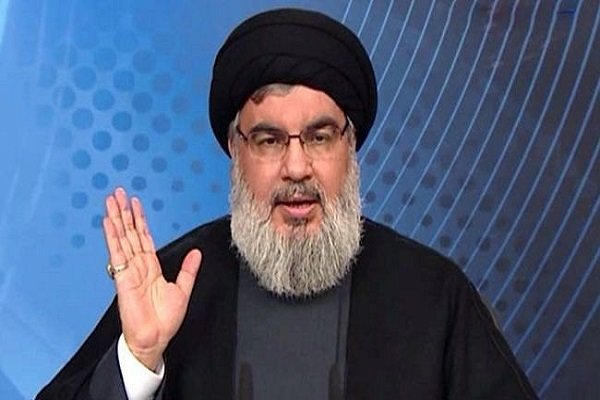Acorrding to MNA, “This electoral platform is not a political document, yet it focuses on an array of headlines that Hezbollah seeks to achieve through its presence in the Parliament,” Nasrallah said,
“The legislative polls constitute a serious opportunity for the Lebanese people to reproduce their national authorities,” he added, heaping praise on the army-people-resistance formula.
“We lead these polls in order to remain the true voice expressing the aspirations of the people, and in defense of our nation against the Israeli and Takfiri enemies,” he stressed.
Nasrallah continued: “We shall work, from our parliamentary position, on:
-protecting Lebanon and its people, territories, oil, and natural resources
-achieving political and administrative reform inside the state institutions
-improving the current vote mode
-developing the judicial system and enhancing it as an independent authority
-bolstering the role of the monitoring bodies
-establishing a national ministry for planning
-drawing special attention to the combat of financial and administrative corruption
-providing the necessary capacities to beef up the security and military institutions, on top of which the Lebanese army
-endorsing the extended administrative decentralization law in Lebanon
-adopting the process of bids and tenders
-reinforcing the role of the civil service board and rendering it a sole entrance to public employment
-activating computerization to facilitate citizens’ formalities.”
“Our platform includes developing the electoral law, especially pertaining to turning Lebanon into a single district and lowering the vote age to 18.”
“We have decided, in Hezbollah, to form a special organizational frame whose task is to face waste and corruption,” he revealed.
“We are committed to keeping our organization and our party clean and uninvolved in any sort of corruption or waste,” he underlined, inviting “whoever owns any given or has any doubt about any likely involvement of any Hezbollah official in corruption” to provide evidence on such implication.”
“I will personally follow up on the issue of fighting corruption, because we are entering a dangerous period,” he stressed.
Touching on the economic and financial policies, the Hezbollah leader highlighted the obligation to control and rationalize public spending in compliance with people’s basic needs, resolve the waste and electricity crises, devise development plans for all regions and provide comprehensive healthcare insurance for all citizens.
He also tackled the necessity to boost the capacities of the governmental hospitals and work on reducing the medical bill, promote the level of public education and enhance the role of the Lebanese University, devise a plan to address the solid waste predicament and a public transport strategy, and resume the reimbursement of July war indemnities and approve the general amnesty law in compliance with the restraints that specify those worthy of pardon.
Nasrallah also maintained that the Syrian refugees must return to the safe areas inside Syria.
“We will work on achieving this electoral program throughout the next four years,” he pledged.
“Some have expected us to assume a role that we cannot play regarding the configuration of the electoral lists; we only exerted our best efforts and we cannot impose anything on anybody,” he said.
“My message for the allies and friends is to be modest and to make concessions (…) conflict paves way for failure,” he stressed.
“As to the relations with the Free Patriotic Movement, our strategic ties are still valid and we shall carry on with our agreement after the elections,” he maintained.
“The President of the republic is entitled to call for talks over the national defense strategy and we do not have any reservations in that respect,” he added.
Turning to Rome II conference, Nasrallah voiced support for the efforts exerted to enable the Lebanese army to defend Lebanon.
“If the government went to Paris to provide assistance, then this is excellent; but if it sought loans, the matter must be discussed inside the Cabinet and the Parliament.”

























Your Comment